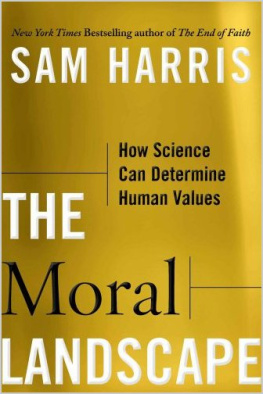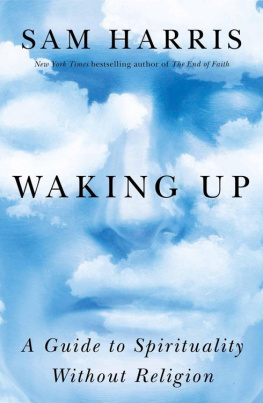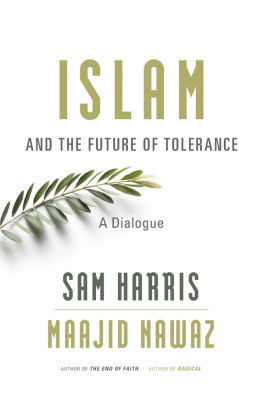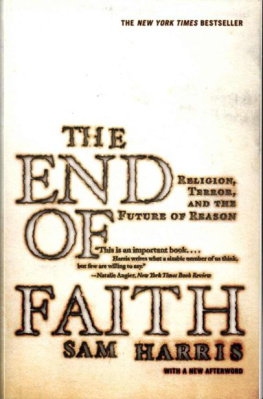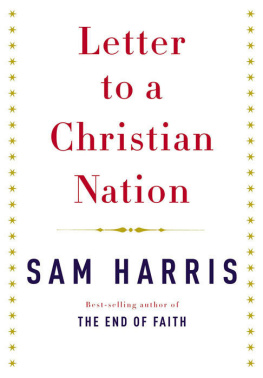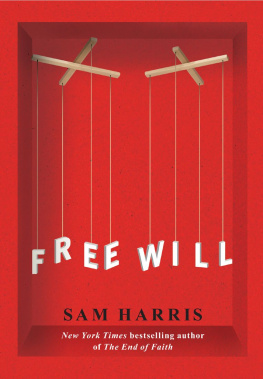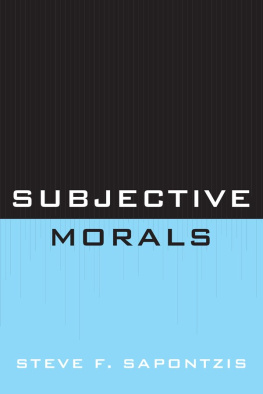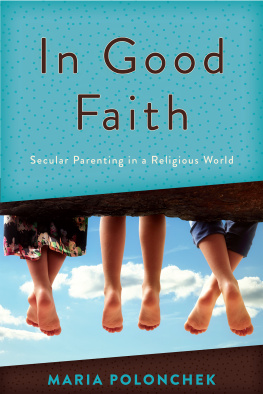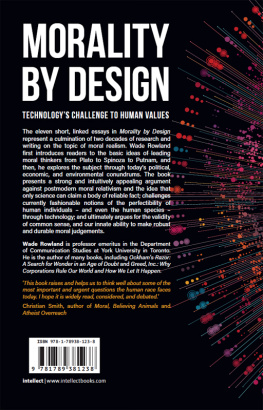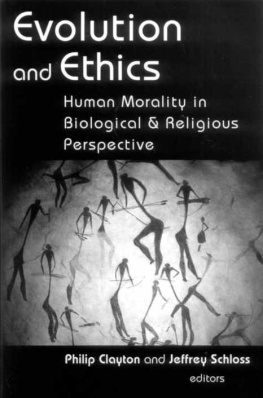Praise for THE MORAL LANDSCAPE
Sam Harris breathes intellectual fire into an ancient debate. Reading this thrilling, audacious book, you feel the ground shifting beneath your feet. Reason has never had a more passionate advocate.
Ian McEwan, author of Atonement and winner of the Man Booker Prize for Amsterdam
A lively, provocative, and timely new look at one of the deepest problems in the world of ideas. Harris makes a powerful case for a morality that is based on human flourishing and thoroughly enmeshed with science and rationality. It is a tremendously appealing vision, and one that no thinking person can afford to ignore.
Steven Pinker, Professor of Psychology at Harvard University and author of How the Mind Works and The Blank Slate
Beautifully written as they were (the elegance of his prose is a distilled blend of honesty and clarity) there was little in Sam Harriss previous books that couldnt have been written by any of his fellow horsemen of the new atheism. This book is different, though every bit as readable as the other two. I was one of those who had unthinkingly bought into the hectoring myth that science can say nothing about morals. To my surprise, The Moral Landscape has changed all that for me. It should change it for philosophers too. Philosophers of mind have already discovered that they cant duck the study of neuroscience, and the best of them have raised their game as a result. Sam Harris shows that the same should be true of moral philosophers, and it will turn their world exhilaratingly upside down. As for religion, and the preposterous idea that we need God to be good, nobody wields a sharper bayonet than Sam Harris.
Richard Dawkins, University of Oxford
Reading Sam Harris is like drinking water from a cool stream on a hot day. He has the rare ability to frame arguments that are not only stimulating, they are downright nourishing, even if you dont always agree with him! In this new book he argues from a philosophical and a neurobiological perspective that science can and should determine morality. His discussions will provoke secular liberals and religious conservatives alike, who jointly argue from different perspectives that there always will be an unbridgeable chasm between merely knowing what is and discerning what should be. As was the case with Harriss previous books, readers are bound to come away with previously firm convictions about the world challenged, and a vital new awareness about the nature and value of science and reason in our lives.
Lawrence M. Krauss, Foundation Professor and Director of the Origins Project at Arizona State University and author of The Physics of Star Trek and Quantum Man: Richard Feynmans Life in Science

ALSO BY SAM HARRIS
The End of Faith
Letter to a Christian Nation

Free Press
A Division of Simon & Schuster, Inc.
1230 Avenue of the Americas
New York, NY 10020
www.SimonandSchuster.com
Copyright 2010 by Sam Harris
All rights reserved, including the right to reproduce this book
or portions thereof in any form whatsoever. For information address
Free Press Subsidiary Rights Department, 1230 Avenue of
the Americas, New York, NY 10020
This Free Press export edition October 2010
FREE PRESS and colophon are trademarks of Simon & Schuster, Inc.
For information about special discounts for bulk purchases,
please contact Simon & Schuster Special Sales at 1-866-506-1949 or
business@simonandschuster.com
The Simon & Schuster Speakers Bureau can bring authors to
your live event. For more information or to book an event
contact the Simon & Schuster Speakers Bureau at
1-866-248-3049 or visit our website at
www.simonspeakers.com .
Manufactured in the United States of America
10 9 8 7 6 5 4 3 2 1
ISBN 978-1-4516-1278-3
ISBN 978-1-4391-7123-3 (ebook)
For Emma
CONTENTS

Introduction
THE MORAL LANDSCAPE
The people of Albania have a venerable tradition of vendetta called Kanun: if a man commits a murder, his victims family can kill any one of his male relatives in reprisal. If a boy has the misfortune of being the son or brother of a murderer, he must spend his days and nights in hiding, forgoing a proper education, adequate health care, and the pleasures of a normal life. Untold numbers of Albanian men and boys live as prisoners of their homes even now. Can we say that the Albanians are morally wrong to have structured their society in this way? Is their tradition of blood feud a form of evil? Are their values inferior to our own?
Most people imagine that science cannot pose, much less answer, questions of this sort. How could we ever say, as a matter of scientific fact, that one way of life is better, or more moral, than another? Whose definition of better or moral would we use? While many scientists now study the evolution of morality, as well as its underlying neurobiology, the purpose of their research is merely to describe how human beings think and behave. No one expects science to tell us how we ought to think and behave. Controversies about human values are controversies about which science officially has no opinion.
I will argue, however, that questions about valuesabout meaning, morality, and lifes larger purposeare really questions about the well-being of conscious creatures. Values, therefore, translate into facts that can be scientifically understood: regarding positive and negative social And if there are important cultural differences in how people flourishif, for instance, there are incompatible but equivalent ways to raise happy, intelligent, and creative childrenthese differences are also facts that must depend upon the organization of the human brain. In principle, therefore, we can account for the ways in which culture defines us within the context of neuroscience and psychology. The more we understand ourselves at the level of the brain, the more we will see that there are right and wrong answers to questions of human values.
Of course, we will have to confront some ancient disagreements about the status of moral truth: people who draw their worldview from religion generally believe that moral truth exists, but only because God has woven it into the very fabric of reality; while those who lack such faith tend to think that notions of good and evil must be the products of evolutionary pressure and cultural invention. On the first account, to speak of moral truth is, of necessity, to invoke God; on the second, it is merely to give voice to ones apish urges, cultural biases, and philosophical confusion. My purpose is to persuade you that both sides in this debate are wrong. The goal of this book is to begin a conversation about how moral truth can be understood in the context of science.
While the argument I make in this book is bound to be controversial, it rests on a very simple premise: human well-being entirely depends on events in the world and on states of the human brain. Consequently, there must be scientific truths to be known about it. A more detailed understanding of these truths will force us to draw clear distinctions between different ways of living in society with one another, judging some to be better or worse, more or less true to the facts, and more or less ethical. Clearly, such insights could help us to improve the quality of human lifeand this is where academic debate ends and choices affecting the lives of millions of people begin.
Next page
